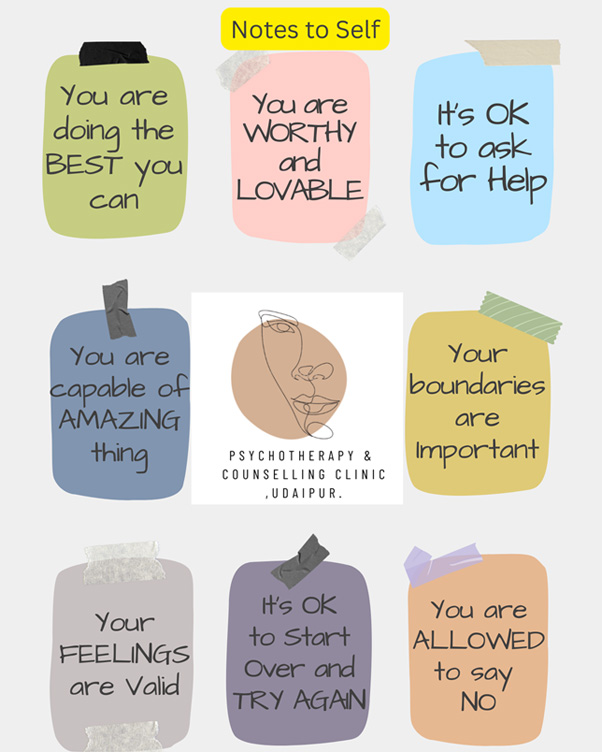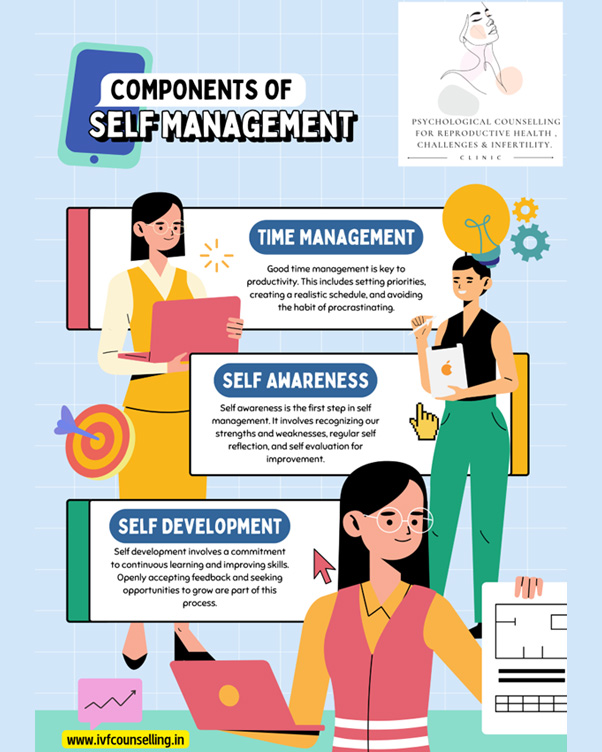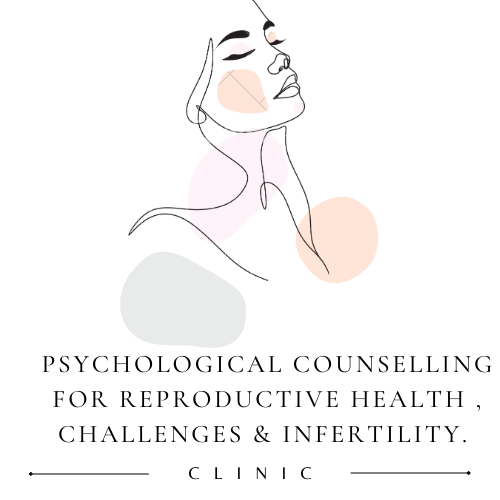
Stress And Burnout
At the Clinic for Psychological Counselling on Reproductive Health & Challenges, we specialize in diagnosis, evaluation and treatments for stress related disorders and mental health conditions.
We extend ourselves as competent, compassionate, ethical and caring mental health specialists whose strive for excellence in patient care, community wellness and medical research.
At our clinic, specialists from different interdisciplinary fields come together for treatments of all forms of stress and burnout issues and mental disorders, in a dedicated fashion to design a better life for people and their families.
Given below is a brief descriptive of the nature, various types, causes and treatments for acute and chronic stress disorders available at our mental health centre in Udaipur.
What is Stress ?
Stress can be defined as a state of worry or mental tension caused by a difficult situation. Stress is a natural human response that prompts us to address challenges and threats in our lives. Everyone experiences stress to some degree. The way we respond to stress, however, makes a big difference to our overall well-being.
- Stress is our body’s response to pressure. Many different situations or life events can cause stress. It is often triggered when we experience something new or unexpected that threatens our sense of self or when we feel we have little control over a situation.
- We all deal with stress differently. Our ability to cope can depend on our genetics, early life events, personality and social and economic circumstances.
- When we encounter stress, our body produces stress hormones that trigger a fight or flight response and activate our immune system. This helps us respond quickly to dangerous situations.
- • Sometimes, this stress response can be helpful. It can help us push through fear or pain so we can run a marathon or deliver a speech, for example. Our stress hormones usually return to normal quickly once the stressful event is over, and there won’t be any lasting effects.
However, too much stress can cause adverse effects. It can leave us in a permanent stage of fight or flight, leaving us overwhelmed or unable to cope. Long term, this can affect our physical and mental health.
At our stress clinic in Udaipur, specialists from different interdisciplinary fields come together for treatments of all forms of stress and burnout issues and mental health disorders , in a dedicated fashion to design a better life for people and their families.

Does Stress affects each one of us !
What makes us stressed?
Many things can lead to stress:
Loss of a loved one/family/friend, medical disease such as bereavement, divorce or separation, toxic relationship trauma, new marriage, parenting issues, childcare issues, old-age issues, marital problems , family problems, problems with inlaws, job and work related problems, losing a job or unexpected money problems.
Work-related stress can also have a negative impact on your mental health. People affected by work-related stress lose an average of 24 days of work due to ill health.
Medical conditions exacerbated or caused by stress include cardiovascular diseases (like heart disease and stroke), diabetes, gastrointestinal issues (, gastric issues, gastric reflux, peptic ulcers , irritable bowel syndrome), mental health disorders (like depression, anxiety, bipolar disorder, severe trauma or torture ), and autoimmune diseases. Chronic stress can increase inflammation, raise blood pressure, and disrupt various bodily functions, leading to a wide range of physical and psychological problems.
Even positive life changes, such as moving to a bigger house, new city, new office place, , new marriage, childbirth, gaining a job promotion or going on holiday, can be sources of stress. If you feel stressed in these situations, you may struggle to understand why or be unwilling to share your feelings with others.
What are the five main causes of stress in our lives?
The five main causes of stress are major life changes, work-related issues, financial problems, relationship difficulties, and health concerns. These can include events like moving, getting married, or losing a job, as well as ongoing pressures such as debt, family arguments, and illness.
1. Major life changes
• Examples: Getting married, getting divorced, having a baby, starting a new job, retiring, living alone, relocation, shifting to live or study or work abroad or moving to a new home.
• Why it's stressful: These events often require significant emotional and logistical adjustments.
2. Work-related issues
• Examples: Feeling pressure at work, being unemployed, irregular work hours, night shift jobs, change shift jobs, being in certain job profile (police, nurse, firemen, army personnel, doctor, surgeon etc) a demanding boss, or a hostile work environment.
• Why it's stressful: Work is a significant part of many people's lives, and issues here can lead to feelings of being overwhelmed and a lack of control.
3. Financial problems
• Examples: Being in debt, unexpected bills, or job loss that impacts income.
• Why it's stressful: Money worries can create a constant source of anxiety and fear about meeting basic needs.
4. Relationship difficulties
• Examples: Problems with a partner, marriage issues, extramarital issues, seprartion, divorce, remarraige or family conflict.
• Why it's stressful: Relationships are a major source of support, so difficulties can be a significant source of distress.
5. Health concerns
• Examples: Dealing with a chronic illness, injury, or the loss of a loved one.
•Why it's stressful: Health problems, whether your own or those of a loved one, can be physically and emotionally taxing.
At our stress clinic in Udaipur, specialists can help identify some of the early causes and signs of stress and offer comprehensive mind and body treatments for same.

How does stress effect our mind and body?
Stress affects both the mind and the body. A little bit of stress is good and can help us perform daily activities. Too much stress can cause physical and mental health problems. Learning how to cope with stress can help us feel less overwhelmed and support our mental and physical well-being.
There are two main types of stress affecting us all:
- • Acute stress. This is short-term stress that goes away quickly. You feel it when you slam on the brakes, have a fight with your partner, or ski down a steep slope. It helps you manage dangerous situations. It also occurs when you do something new or exciting. All people have acute stress at one time or another.
- • Chronic stress. This is stress that lasts for a longer period of time. You may have chronic stress if you have money problems, an unhappy marriage, trouble at work, or significant health concerns. Any type of stress that goes on for weeks or months is chronic stress.
You can become so used to chronic stress that you don't realize it is a problem. If you don't find ways to manage stress, it may lead to health problems. Some research has also linked long-term stress to gastrointestinal conditions like Irritable Bowel Syndrome (IBS) or stomach ulcers and conditions like cardiovascular disease (hypertension, dysrhythmia and strokes).
At our stress clinic in Udaipur, specialists from different interdisciplinary fields come together for treatments of all forms of stress and burnout issues for timely evaluation and treatment of stress induced conditions.
What are the signs of stress/burnout ?
How you might feel:
- Anxious
- Afraid
- Angry or Aggressive
- Sad
- Irritable
- Frustrated
- Depressed
- Numb
- Fogged
- Tensed
These feelings can sometimes produce physical symptoms, making you feel even worse.
How your body might react:
- Cramps
- Dizziness or shaking
- Migraines
- Tension type headaches
- Headaches
- Nausea
- Indigestion
- Digestive problems such as constipation, bloating, gas or diarrhoea
- Shallow breathing, asthma, short breathing or hyperventilating
- Sweating
- Heart palpitations
- Aches and pains
- High blood pressure
- Heart disease
- Diabetes
- Obesity
- Depression or anxiety
- Skin problems, such as itching, dermatitis, hives, rashes, acne or eczema
- Menstrual problems and infertility
- Frequent aches and pains
- Lack of energy or focus
- Sexual problems
- Stiff jaw or neck
- Tiredness and fatigue
- Weakened immune system (like arthritis, fibromyalgia and psoriasis)
- Pain and pain linked conditions
- Other conditions: Recurrent infections, polycystic ovarian syndrome and infertility
How you might behave:
- Memory issues
- Concentration lapses
- Withdraw from other people or snap at them
- Avoidance and Isolation
- Disordered eating
- Poor self image / self confidence
- Mood swings and anger spells
- Have death related thoughts
- Self harm
- Be indecisive or inflexible
- Be tearful
- Have problems getting to sleep or staying asleep
- Experience sexual problems
- Get into addictions – Internet, gaming, gambling, smoking, drinking alcohol or taking drugs more than usual
Often, people with chronic stress try different things to cope. And some of those things are habit-forming and can have an impact on your health. These may include:
- Alcohol use disorder
- Gambling disorder
- Overeating or developing an eating disorder
- Participating compulsively in sex, shopping or internet browsing
- Smoking
- Substance use disorder
- Internet addiction / mobile overuse
- Screen addiction
If the stress is long-lasting, you may notice your sleep and memory are affected, your eating habits change, weight, metabolism, immunity or you feel less inclined to exercise.
Stress disorders are a group of mental health conditions resulting from a traumatic event or ongoing stress, with common examples including post-traumatic stress disorder (PTSD) and acute stress disorder (ASD). Key symptoms involve re-experiencing the trauma, avoiding reminders of the event, negative changes in mood, and increased arousal. While ASD symptoms occur within a month of the event and last less than four weeks, PTSD is diagnosed if symptoms persist longer.
Common stress disorders include:
Post-Traumatic Stress Disorder (PTSD):
Develops after a traumatic event, with symptoms lasting for more than a month.
Acute Stress Disorder (ASD):
A short-term reaction to a traumatic event that occurs within a month of the event. If symptoms continue beyond four weeks, it can be diagnosed as PTSD.
Your mental well-being is just as important as your physical well-being. Our experts at stress Clinic can help you live life to the fullest.
How is stress diagnosed?
Stress is subjective — not measurable with tests. Only the person experiencing it can determine whether it’s present and how severe it feels. A healthcare provider may use general examination, medical workups and history, questionnaires to understand your stress and how it affects your life.
If you have chronic stress, your healthcare provider can evaluate symptoms that result from stress. For example, they can diagnose and treat high blood pressure.
Stress /Burnout Management and Treatment
Help Is Available for Stress
Stress is a part of life. What matters most is how you handle it. The best thing you can do to prevent stress overload and the health consequences that come with it is to know your stress symptoms.
If you or a loved one is feeling overwhelmed by stress, talk to your doctor. Many symptoms of stress can also be signs of other health problems. Your doctor can evaluate your symptoms and rule out other conditions. If stress is to blame, your doctor can recommend a therapist or counselor to help you better handle your stress.
How can I relieve stress on my own?
Stress can be a short-term issue or a long-term problem, depending on what changes in your life. Regularly using stress management techniques can help you avoid most physical, emotional and behavioral symptoms of stress.
You can’t avoid stress. But you can stop it from becoming overwhelming by practicing some daily stress relief strategies:
- Stress management starts with feeling good physically. Try getting some form of physical activity when you feel symptoms of stress coming on. Even a short walk can boost your mood.
- At the end of each day, take a moment to think about what you’ve accomplished — not what you didn’t get done.
- Set goals for your day, week and month. Narrowing your view can help you feel more in control of the moment and long-term tasks.
- Consider talking to a therapist or a healthcare provider about your worries.
Stress and Burnout Prevention
How can I prevent or reduce stress?
Many daily strategies can help you keep stress at bay:
- Try relaxation activities, like meditation, yoga, tai chi, breathing exercises and muscle relaxation. Programs are available online, in smartphone apps, and at many gyms and community centers or contact us at our stress clinic in Udaipur.
- Take good care of your body each day. Eating right, participating in physical activity and getting enough sleep can help your body handle stress much better.
- Stay positive and practice gratitude, acknowledging the good parts of your day or life.
- Accept that you can’t control everything. Find ways to let go of worry about situations you can’t change.
- Learn to say “no” to additional responsibilities when you’re too busy or stressed.
- Stay connected with people who keep you calm, make you happy, provide emotional support and help you with practical things. A friend, family member or neighbor can become a good listener or share responsibilities so stress doesn’t become overwhelming.
When should I talk to a healthcare provider about stress?
You should seek medical attention if:
- You feel overwhelmed.
- Your physical health is affected.
- Symptoms of stress aren’t going away with stress relief techniques.
- You’re using recreational drugs or alcohol to cope.
- Thoughts of suicide or death trouble you.
Your primary care provider can help by offering advice, prescribing medicine or referring you to a mental health professional, like a psychologist or psychiatrist.
Stress is a normal reaction to challenges in your physical environment or in your perceptions of what's happening around you. Mental health Experts consider distress to be stress that is severe, prolonged, or both. Distress is when you feel you’re under more stress than you can handle.
At our stress clinic in Udaipur, specialists can help identify some of the early causes and signs of stress and offer comprehensive mind and body treatments for same. Our team of experts are one among the best in Udaipur to help with:
- What symptoms of stress should you be concerned about?
- Psychosocial evaluation: Stress assessments and burnout evaluation
- How can you manage your stress better?
- What stress management techniques should you try?
- Plan of professional help / therapist or support group for you.




Talks by Dr Ansha Patel & Dr Rahul Taneja on:
Client Feedbacks
Thank you doctor ansha...mujhe bhot accha lga aapse consult karke... Bhot hi safe, secure, peaceful feeling hoti h every session ke bad...ek special feeling h jb aapse bat karte h to lagta h kisi family member se bat kar rahe h (like a elder sister)
Interactive and wonderful session with lots of case references.
Very informative session
